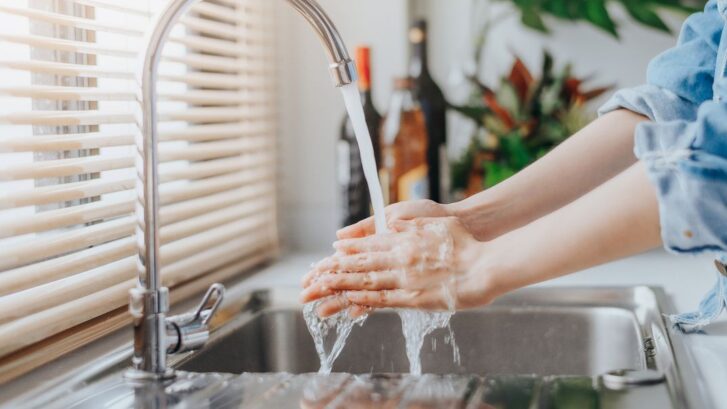COVID-19 ‘Cures’ That Won’t Help, and What Will
Fake “cures” and bad advice are flying around the Internet at warp speed. Our concierge doctors understand the need to think that something can help. The virus is spreading rapidly, we don’t yet have widespread testing, and there is no vaccine available.
All this leaves people feeling helpless, and wanting to take some kind of measure beyond stocking up on supplies and washing their hands. But not only are many of the so-called “cures” zipping across social media not helpful, but some can also be harmful, even deadly.
What NOT to do
Here are some of the wilder claims we’ve come across:
- Do not drink chlorine bleach or chlorine dioxide products.
Do not drink any concoctions comprising chlorine bleach, including the widely promoted “miracle mineral solution,” which contains chlorine dioxide. According to the U.S. Food and Drug Administration (FDA), consuming chlorine dioxide products can induce “severe vomiting, severe diarrhea, life-threatening low blood pressure caused by dehydration, and acute liver failure.”
Likewise, do not gargle with chlorine bleach, spray it on your skin or inhale it. The World Health Organization (WHO) cautions that spraying it on your skin will not kill the virus if it is inside your body, but can damage the mucous membranes in your eyes and mouth.
- Do not use cocaine to protect against the virus.
The French Ministry of Health last week tweeted: “No, cocaine does not protect against COVID-19. Cocaine is an addictive stimulant drug. Using can seriously harm people’s health and create undesirable effects.”
- Don’t depend on colloidal silver to prevent the coronavirus.
The Missouri attorney general last week filed a lawsuit against the person who was pitching the “Silver Solution” on television, and both the FDA and the New York attorney general’s office have issued cease-and-desist letters to him.
- Don’t put Neosporin up your nose with a Q-Tip.
Not only does the label warn against this practice, but Neosporin is an antibacterial product. COVID-19 is a virus, not a bacterium. Antibacterial soaps, wipes, sprays, and antibiotic prescriptions are not effective against any virus.
- Don’t take medical advice from strangers on the Internet.
As reported by The Washington Post, an investigation by the U.S. State Department found that between January 20 and February 10—a three-week period—two million tweets propagated coronavirus theories and misinformation. Keep in mind that social media, in large part, is actually nothing more than digital gossip. If you wouldn’t take medical advice from your Uber driver, seeing it in a post doesn’t make it any more valid.
And what are the chances that these people tapping away furiously in their homes know more than the world’s top scientists?
What TO do
- Wash your hands regularly
You know the drill: Wash for at least 20 seconds with any kind of soap, ensuring you cover every part of your hands, including under your nails (and those with extra-long nails might want to shorten them for the duration). But do not use hot water, which will damage the skin barrier and allow germs to enter. You can’t use water hot enough to kill viruses anyway, because you’d end up burning your skin if you tried.
And use either a moisturizing soap or use a moisturizer afterward that doesn’t contain alcohol, because the frequent hand washing will tend to damage the skin. Use hand sanitizer (if you can find it) until you can wash your hands.
- Keep your hands away from your face
The critical area to avoid touching is the so-called “T-zone”; that is, your eyes, nose and mouth. That’s because the coronavirus enters the body through the mucous membranes. Unless you’ve just washed your hands, use a tissue to touch your face if necessary.
- Keep your distance as much as possible
You’ve heard the term “social distancing.” This means not only avoiding large gatherings, but as much as possible staying six feet away from people whenever possible. That’s because researchers have determined that the virus droplets can travel up to six feet from a cough or a sneeze. Also avoid shaking hands and hugging, and cough or sneeze into your elbow or a tissue.
Social distancing is especially important for those over 60, because the immune system becomes less robust with age, and for those with underlying health conditions that may have already compromised their immune systems. Tom Hanks, who last week announced he’s been infected, is diabetic. His wife, Rita Wilson, who is also infected, recently underwent treatment for breast cancer. So they are both at higher risk.
- Boost your immune system
Make sure to eat a healthy diet, get plenty of sleep, stay hydrated, and exercise regularly. Clean and disinfect frequently touched surfaces at home. The Environmental Protection Agency (EPA) has compiled a list of recommended cleaning products (https://www.epa.gov/sites/production/files/2020-03/documents/sars-cov-2-list_03-03-2020.pdf) for COVID-19, or you can use full-strength household vinegar to scrub surfaces.
- Get your information from reliable sources
That includes us. If you read on social media that hot baths or garlic or certain supplements will prevent or cure the coronavirus, feel free to ask us.
The Centers for Disease Control and Prevention (CDC) has a website (https://www.cdc.gov/coronavirus/2019-nCoV/summary.html) that provides regular updates about the coronavirus, as does the Florida Department of Health http://www.floridahealth.gov. You can also call the FDH’s 24-hour hotline (1-866-779-6121).

